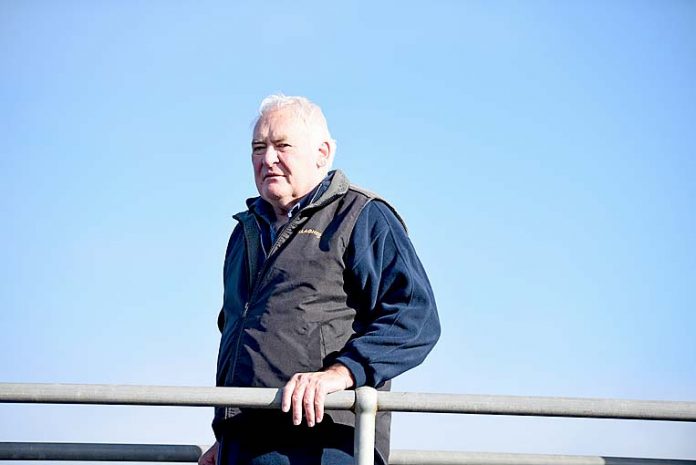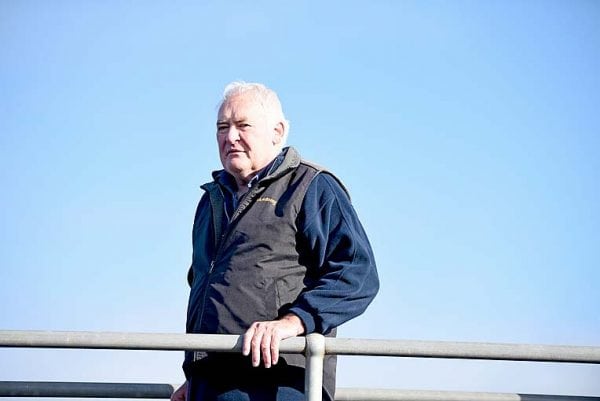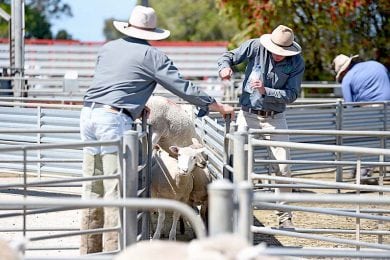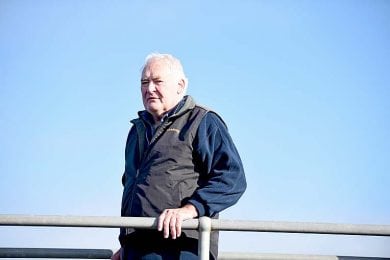

A VETERAN livestock industry identity has called on Grant District Council to start slashing costs at the Glenburnie Saleyards to stop the cattle exchange from haemorrhaging money.
Peter Lamond – who recently stepped down as chair of the combined agents group – has spoken out amid revelations the livestock selling centre has posted a staggering $1.8m in losses over the past 10 years.
His comments come as council administration this week defended its management of the livestock exchange amid questions over whether it had been “hiding” the true financial woes of the complex.
The saleyards – which turns over millions of dollars each year in livestock sales – is a critical selling avenue for hundreds of farmers and underpins a string of livestock selling companies.
“It is becoming a joke, nothing is being done about it – it is just madness,” Mr Lamond told The Border Watch.
“It is time for action, otherwise we might not have a saleyards. I do not believe ratepayers know how bad it really is.”
New figures show cattle numbers this year continue to be sluggish with only 54,000 being sold through the livestock centre this year.
This is significantly down from six years ago when nearly 90,000 cattle went through the saleyards in the same period.
“The costs of running the saleyards are just too high, council must start to cut costs,” Mr Lamond said.
The former Grant District councillor revealed the industry had been calling on council to trim costs, but they “have not taken any notice”.
“Ratepayers are being left to make up the losses,” Mr Lamond said.
Speaking at a council meeting this week, Cr Alan Hill questioned council’s transparency on the issue.
“The auditor has said it has been losing money for well over a decade, not five years as per the recent media release,” Cr Hill said.
“I have great concerns about that. If that is a fact, are we hiding the real financial status of the saleyards?
“The suggestion is we have not been providing the same information publicly the auditor has provided.”
Council chief executive officer Trevor Smart rejected any suggestions council was not being upfront with the community.
“I do not believe we are hiding anything about the saleyards and the financial reporting – I can only speak for five and a bit years, I cannot speak before that time,” Mr Smart told the council.
“We have been open in our accounting and financial reporting of the saleyards.”
Responding to these comments, Cr Hill said it was “either us or the auditor”.
Cr Hill revealed the facility dominated discussion at a recent meeting between the independent auditor and council’s audit committee.
“It just appears publicly we are not painting the picture the auditor painted to us during private discussions,” the elected member said.
“I am almost of the opinion that councillors should have the opportunity to ask the auditor personally in regards to these matters. He is in disagreement in what we are publicly saying about the saleyards.”
In response, Mayor Richard Sage said the auditor did say he could see the centre’s finances were beginning to turn around.
“We have changed the management system at the saleyards,” Mr Sage said.
“Council now makes the final decision on what we charge per head.”
But he admitted it could take some time before the centre was “out of the red”.
Mr Sage said the auditor had revealed a number of council-owned saleyards across the state were also losing money.
“He did not say any of them under his audits are actually making money and he sees it as a service to the community,” he said.
He warned if the saleyards collapsed producers would face a similar situation to dairy farmers.
“Nobody will be able to determine what the price will be for their stock, they will take what they can get,” the mayor said.
“I know there is a lot of work to be done, internet sales need to be fully investigated.
“We need to take stock of the current direction we are taking and look at a report back into council before the end of the year.
“But we do need to take stock and look at promoting the saleyards.
“I know stock numbers will fluctuate from time to time.”
Mr Sage said council had implemented a long-term financial plan and had increased the cost of selling livestock.
He said agents had told him they hoped stock numbers would “turn around”.
“They believe there were good numbers out there, but it is a matter of getting them through the saleyards,” Mr Sage said.
Meanwhile, Mr Smart said council would keep expenditure at a minimum and would seek grants to add to the infrastructure.









